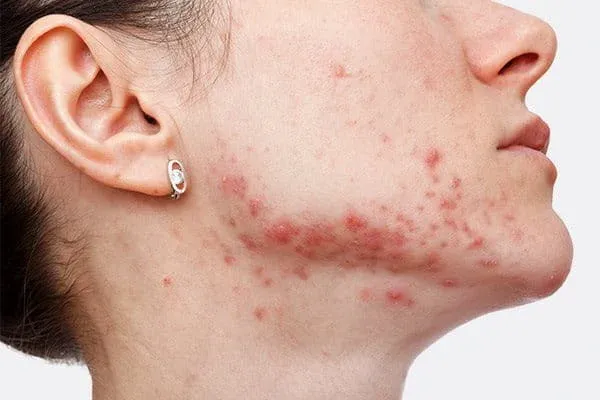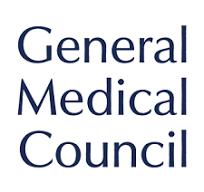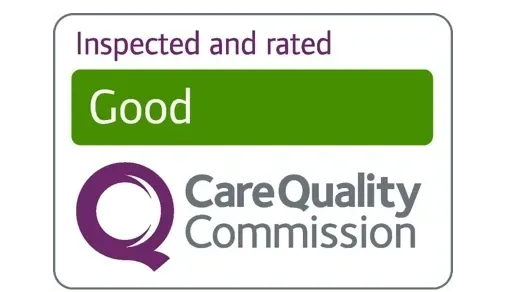What Is Post-Inflammatory Hyperpigmentation (PIH)?
PIH occurs when the skin produces excess melanin in response to inflammation or trauma. It is the skin's defense mechanism reacting to injury, resulting in darkened patches at the site of the original wound.
PIH appears as flat brown, black, or purple marks (depending on your skin tone) at the site of:
- Acne breakouts (often the most common cause)
- Eczema flare-ups or allergic reactions
- Cuts, grazes, burns, or insect bites
- Abrasive cosmetic procedures (e.g., aggressive peels, friction from waxing)
Unlike active acne or a rash, PIH is not raised or inflamed; it is simply a pigmentary "scar" left behind. While not permanent, PIH can last for months or even years without proper dermatological treatment.

How Does PIH Develop?
PIH is often worse in those with naturally richer or darker skin tones (Fitzpatrick types III-VI) because their melanocytes (pigment-producing cells) are inherently more reactive. The process involves two primary mechanisms:
- Inflammatory Response When the skin is injured, immune cells release chemicals called cytokines. These chemicals signal the melanocytes to increase melanin production to protect the damaged area.
- Melanin Deposit This excess melanin is either deposited in the epidermis (upper layer, resulting in light brown marks that fade faster) or, more stubbornly, in the dermis (deeper layer, resulting in grey/blue/dark black marks that require more advanced treatment).
Effective PIH treatment, therefore, must focus on both reducing existing pigment and calming the underlying inflammation to prevent new marks.
Our 4-Step PIH Care Pathway
- Specialist Consultation
Identify PIH vs. other pigmentation conditions (such as melasma or sun spots). - Targeted Treatment Plan
Combination of topical, procedural, and lifestyle strategies tailored to your skin type. - In-Clinic Treatments
Safe procedures to speed up fading while avoiding further irritation. - Aftercare & Skin Health
Preventing recurrence with SPF advice, acne/eczema management, and long-term support.
PIH Treatment Options at Revitalise London
Our approach to treating PIH at Revitalise London is cautious and customised, prioritizing results without causing further skin irritation. Options include:
- Advanced Prescription Topical Agents Tailored formulas combining proven ingredients like Hydroquinone, Retinoids (Tretinoin), Azelaic Acid, Tranexamic Acid, and Kojic Acid to inhibit the pigment-producing process.
- Superficial Chemical Peels Using gentle acids (such as Lactic, Salicylic, or low-concentration Glycolic) to accelerate the skin renewal cycle and shed pigmented skin cells without inflaming the underlying tissue.
- Targeted Laser Therapies Employing specialized low-fluence Q-switched or Pico lasers to safely shatter the stubborn dermal pigment (deep PIH), minimizing heat transfer to prevent rebound pigmentation.
- Medical Microneedling Combining the treatment with bespoke depigmenting serums (e.g., Vitamin C, Niacinamide) to enhance penetration and delivery of active ingredients deep into the skin.
- Medical-Grade Skincare & Prevention Establishing a strict, non-negotiable home routine with high-SPF, broad-spectrum sunscreen and non-comedogenic products to maintain a clear skin barrier and prevent future inflammatory triggers.
100% Satisfaction Guarantee
If you're not completely satisfied with your treatment results within 30 days, we'll provide a refund* or free re-treatment. Your satisfaction is our priority.
Licensed & Insured • Risk-Free Treatment
Why Choose Revitalise London for PIH?
We combine clinical excellence with a patient-first approach. Here's why hundreds trust us:
Nathalie Emmanuel
Actress - Game of Thrones Star
Had a wonderful experience with Dr Ken and his staff with my forehead lipoma removal. Thorough in planning before the procedure and so far, l've had a great experience with aftercare. When I had any questions there was always someone available to answer them.

Our Medical Team
Meet the experienced professionals who will provide your care
Our Accreditations
Trusted by healthcare regulators and professional bodies for maintaining the highest standards of medical care and patient safety.



🛡️ Regulated & Certified Healthcare
All treatments are performed by GMC registered doctors in our CQC regulated clinic, ensuring the highest standards of safety and care.
FAQs About Post-Inflammatory Pigmentation
Mild PIH can fade naturally over several months, especially in younger individuals with good skin turnover. However, deeper pigmentation may take a year or longer to fade without intervention. Professional treatments like topical brightening agents, chemical peels, and laser therapy can significantly speed up the healing process and improve skin clarity.
No — PIH is not the same as acne scars. PIH refers to flat, dark spots left behind after inflammation, such as acne, eczema, or injury. It’s purely a color change in the skin. In contrast, acne scars often involve textural changes like pitting or raised areas. While they may appear together, PIH and scarring require different treatment approaches.
Yes, PIH can reappear if the underlying cause persists, such as ongoing acne, skin picking, or irritation from harsh skincare. That’s why a comprehensive treatment plan includes both pigmentation correction and prevention strategies, such as anti-inflammatory skincare, acne control, and sun protection to reduce recurrence.
Yes — melanin-rich skin types (Fitzpatrick types IV–VI) are more prone to developing PIH due to an increased response to inflammation or injury. However, with the right approach, PIH can be safely and effectively treated. Our dermatologists tailor every treatment plan to suit your specific skin type and pigmentation depth, minimizing risks like over-lightening or irritation.
The best treatments for post-inflammatory hyperpigmentation (PIH) include topical ingredients like hydroquinone, azelaic acid, niacinamide, and tranexamic acid. Chemical peels, microneedling, and laser treatments (such as IPL or Q-switched lasers) help fade stubborn pigmentation. Daily sunscreen is essential to prevent worsening. Treatment is most effective when customized to your skin type and the cause of PIH.
To prevent PIH, treat skin conditions like acne or eczema early, avoid picking or irritating the skin, and use gentle skincare. Daily use of broad-spectrum SPF 30+ is key to blocking UV-triggered pigmentation. Anti-inflammatory ingredients like niacinamide also help reduce risk. Consistent sun protection and skin barrier care are essential for prevention.





